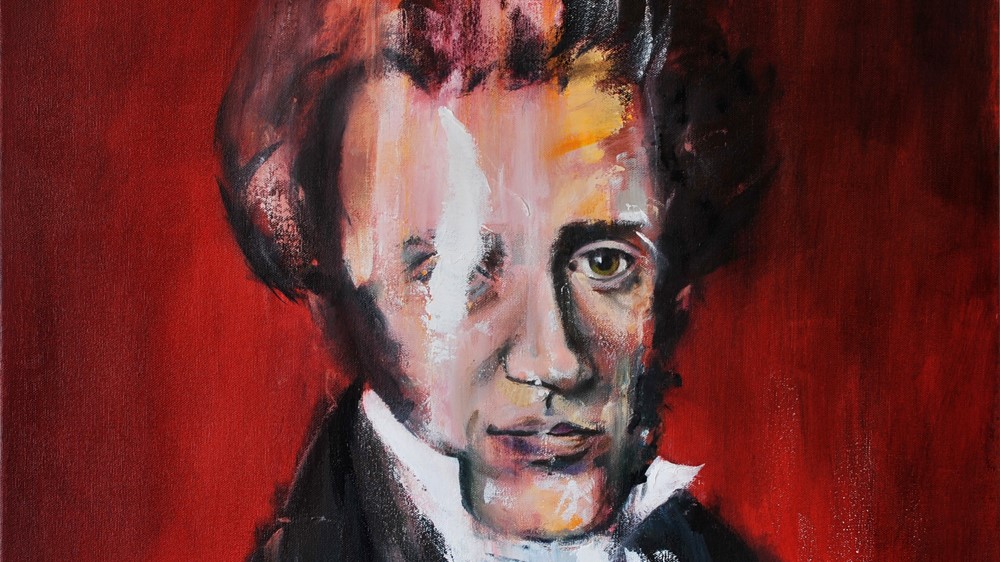Anxiety in Existentialism
This week we are talking about anxiety—not as a bodily response to stress, nor as a vague angst, but as an existential reaction.
The first philosopher to formalise this form of anxiety was Søren Kierkegaard (b. 1813; pictured). Kierkegaard was responding to Hegel’s idea that humankind is enchained to inevitability, by which human consciousness is part of the environment that determines it through continuous historical development.
Kierkegaard, in contrast, spoke of humans as self-determining individuals. Born in subjective will, our lives are controlled by our choices. But the absolute freedom to choose brings with it a certain kind of terror.
In The Concept of Anxiety Kierkegaard describes the case of someone standing upon a cliff edge or atop a tall building. They experience two fears: one of falling, associated with not wanting to die, vertigo, and so forth; the other of choice.
The latter elicits an anxiety which is similar in response to vertigo but completely different in origin: a dizziness which comes from an awareness that even though the person doesn’t want to jump, they could.
Have you ever felt that when facing a choice?
These feelings are clearly negatively experienced by whomever has them. However, this anxiety increases our awareness of possibility, of what it means to be ultimately responsible for our choices.
Kierkegaard’s philosophy was developed by other existentialists, including Jean-Paul Sartre. Sartre saw freedom as a potentiality which constitutes humans: viz, we are our choices. We don’t choose birth but we are able to make other choices as we a thrown forth in this godless universe.
Facing choices can strike us with anxiety-ridden fears of freedom. Where pre-reflective consciousness and reflective consciousness meet we become acutely aware of our detachment from the world in our choices: an awareness of nothing; but, at the same time, evidence of our engagement with it: nausea.
And, yet, he is still responsible for what he is.

